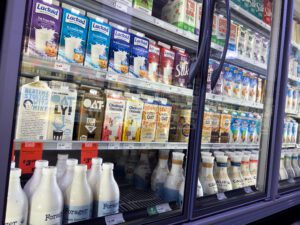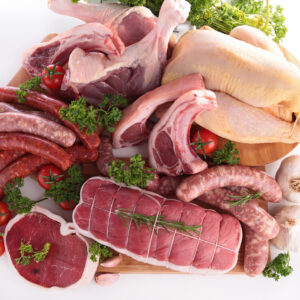Health Quiz: Can You Name 5 Veggies that Cause Gas?
March 25, 2017
 493
493 
While the occasional bouts with gassiness happen to you from time to time, they are usually the result of a particular food item that you ate. In most cases these occurrences are nothing more severe than mildly uncomfortable and a source of temporary embarrassment for you and those around you.
For others of you, the diagnosis of a condition such as irritable bowel syndrome or other digestive system deficiency means having to identify and reduce or eliminate food sources that result in more serious symptoms of gas that include severe abdominal cramping. Some of those foods? Veggies. Keep reading to find out which ones!
You experience gas when the bacteria of the large intestine do not completely break down the foods you eat. Gas can sometimes become uncomfortable and is usually nothing to be concerned about, but any discomfort that lasts for an extended period of time should be checked out by your doctor. As gas release is caused as a bi-product of carbohydrate processing, excessive or painful gas can be an indication of improper absorption of carbohydrates, or overactive bacteria in your digestive tract.
Unfortunately, when you finally decide to modify your overall diet to include fruits and vegetables in an effort to “get healthy,” the initial result is an overactive digestive system, which is accompanied by bloating and gas. In most cases, it is the raw form of certain vegetables that are the most offending to those of you who have a sensitive stomach or digestive system. The good news is that your body is generally adaptable. Most you who have made a dramatic diet change, and whose digestive system is simply not agreeing with you, will find that adding new foods gradually will do the trick. Giving you body time to adjust to the different metabolic requirements may eventually allow the inclusion of all of the healthy additions to you diet that you are aiming for.
Specific Veggies to Watch Out For
Meanwhile, there are specific vegetables that you will find are typical of causing problems for sensitive systems. While, obviously, no doctor will advise taking vegetables out of your diet, there is benefit to which vegetables will affect your digestive system, and avoid them at inopportune times, such as, during that important dinner party at your boss’s house. The veggies to be careful of are cabbage, sauerkraut, broccoli, Brussels sprouts, cauliflower, cucumbers, asparagus, turnips, radishes and onions. While you might experience discomfort after eating these vegetables in any form, you will find that the problems only occur, or are more intense, when they are eaten raw.
Remedies
There are over-the-counter digestive aids, which help you metabolize carbohydrates by supplementing your body with lactase (an enzyme that breaks down the foods you eat and reduces gas production). These products usually have their own health benefits, as lactase is a component of calcium, which you need for strong bones and teeth. In many cases doctors will recommend daily supplementation of these products to insure against calcium deficiency. For many, simple daily supplementation is preferable to avoiding your veggies.
For a boost to your natural digestive powers all-around, try products such as Bacteral, ActiveZyme or Kurzyme – all available on Nutricell.com.


In recent years, seed milks have gained popularity as a nutritious and eco-friendly alternative to dairy and other plant-based milks. Marketed as a healthy option, these beverages are often touted for their rich nutrient profiles and sustainability. However, a closer look reveals that not all seed milks are created equal. Many contain hidden ingredients and […]


NOTICE TO THE PUBLIC! A vast array of products seen in American grocery stores are notably absent on European shelves. This is not due to a lack of international trade but rather stringent food safety regulations in the European Union. Many popular American foods are banned in Europe due to concerns about health risks and […]


Did you know that there lurks an invisible ingredient in meat that has been raising health concerns —It is called meat glue- scientifically known as transglutaminase? Transglutaminase is an enzyme used to bind pieces of meat together to create larger, more uniform cuts that creates a seamless appearance. According to the American Meat Institute, it […]